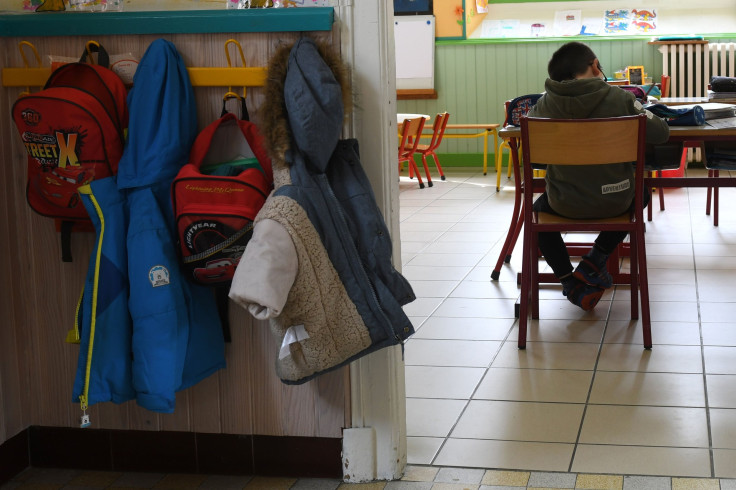Catholic Student Forced To Wipe Off Ash Wednesday Cross By Teacher

A teacher from Bountiful, Utah, who forced a Catholic student to wash the Ash Wednesday cross from his forehead, was placed on administrative leave for the same.
William McLeod was the only student in his class with the ash cross and several of his classmates asked him what it was. He explained that he was Catholic and since it was the first day of Lent and Ash Wednesday, he was supposed to wear the cross. The nine-year-old had come to his school after having attended Catholic mass when his teacher, Moana Patterson, called his ash marking “inappropriate” and proceeded to give him a hand wipe to clean it off in front of the class.
“She took me aside and she said, ‘You have to take it off’ She gave me a disinfection wipe —whatever they are called—and made me wipe it off,” he said.
Initially, McLeod tried explaining to Patterson that he couldn’t wipe the cross since it was important to him and also because it was the beginning of Easter. However, on the teacher’s insistence, he relented and wiped the cross.
According to his grandmother, Karen Fisher, McLeod was crying and approached the school’s psychologist. She said he was embarrassed by the whole ordeal. The school called her after they found out about the incident.
The incident happened at Valley View Elementary and Patterson was placed on administrative leave later. An investigation into whether the teacher should face any disciplinary action is currently on.
“The actions were unacceptable. No student should ever be asked or required to remove an ash cross from his or her forehead,” Davis School District spokesman Chris Williams said. “Why that even came up, I have no idea. When a student comes in to school with ashes on their forehead, it’s not something we say, ‘Please take off',” Williams continued.
Patterson had a meeting with the principal and the school board following the incident. She called Fisher to apologize to her after the meeting. She also asked Fisher if she could reapply the ashes herself.
“I told her that’s not how it works,” Fisher said.
The district reached out to the family and also called their education equity director, who is a deacon, to reapply the ash cross to the boy’s forehead. Patterson also gave McLeod a handwritten note and a candy bar as way of an apology. The board said it was not aware of Patterson’s religious affiliation.
Jean Hill, from the Catholic Diocese of Salt Lake City, said that while they understand mistakes happen, the diocese appreciates how McLeod used the situation to educate his teacher about a part of his faith and what it meant to him. “Learning about one another is one way we build community across religious, political, racial, ethnic and other borders,” she said.
The state of Utah has a Mormon majority who celebrate Easter but do not observe Ash Wednesday—a Christian holy day of prayer and repentance. It falls on the first day of Lent and six weeks before Easter. Ash has a long history of being used as a sign of mortality in Christian and Jewish worship.
Catholics are a minority in Utah; there are about 330,000 Catholics in the state and they account only for around 10 percent of the population, Hill said. More than two-thirds of the majority in the state are Mormons.
© Copyright IBTimes 2025. All rights reserved.





















